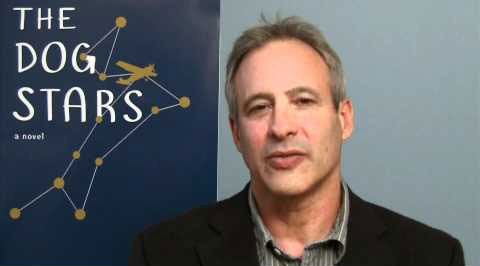The Dog Stars
There’s an excellent book making the rounds of our little poker circle called The Dog Stars by Peter Heller. Heller is a close friend of my cousin Max Hartshorne, who loved the book, and it was also very highly recommended by our buddy Ed Valerio, a combat veteran and military historian.
It took me more than three weeks to read The Dog Stars because I became completely absorbed in the apocalyptic hellscape that Heller has created.
Again and again I would start reading and doze off into fevered dreams about the central character, a guy named Hig, his dog Jasper and his partner, a trigger-happy fellow appropriately named Bangley.
Hig and Bangley have been holding off Mad Max-style invaders from their little airport in Colorado because Hig has an old Cessna with which he patrols the perimeter and Bangley is a gunsmith and marksman and combat tactician.
They live in a world where most intruders are intent on killing you, and even if they aren’t, they’re probably carrying a deadly blood disease, so unless you shoot first and ask questions later, you’re probably dead meat.
That’s about all I’ll say about the specifics, because you really should read this book, and I don’t want to spoil it, but I have to add that besides creating a realistic universe where the characters have to shed their basic humanity to survive, Heller has also done a truly masterful job creating the characters and describing the interplay between and among them.
Hig, for example, is basically a kindhearted soul, but he knows that without Bangley he would have been dead long ago. When he sets out on some adventures of his own, Bangley’s voice becomes part of his own internal dialogue, and it saves his life more than once.
This internal dialogue, which comprises the narrative of the novel, kind of reminds me of Samuel Becket’s story about the guy walking up and down the beach switching rocks from one pocket to another.
It’s a commentary on how the human mind works and, in a larger sense, what makes us behave as we do, and, in an even larger sense, what it is that makes life worth living.
Back in 1974, I read a story called “Game” by Donald Barthelme with a similar internal dialogue:
“Shotwell and I watch the console. Shotwell and I live under the ground and watch the console. If certain events take place upon the console, we are to insert our keys in the appropriate locks and turn our keys.
“Shotwell has a key and I have a key. If we turn our keys simultaneously the bird flies, certain switches are activated and the bird flies.”
This story was the inspiration for my own story, “Aboard the Mothership,” which was published in the Yale Literary magazine.
I sat down and typed it in twenty minutes without a single pause, as if I were taking dictation from some supernatural source.
It had a similar internal dialogue. Instead of Shotwell, I used Weston, a character borrowed from C.S. Lewis’ Perelandra series, which I don’t recommend.
“Weston is getting edgy. He clips and files his nails with a pocket manicure kit.” The narrator and Weston fly in the mothership to the mountain, which opens to receive them.
The last line was: “Smoke comes from the mountain sometimes. I hope it will not be Weston.” I have no idea where that came from.
Shotwell, Weston and Bangley are all kindred spirits in the life of the mind, and I have to hand it to Peter Heller for a ripping good read.
As I said, he creates a universe in which the characters must shed their basic humanity to survive, but then he shows us how they can regain their humanity and create a life worth living.

